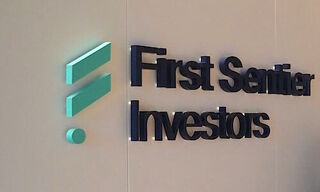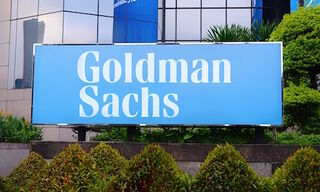JB's Philipp Rickenbacher: «We Are Hiring More Client Advisors»
Julius Baer achieving all of the goals it set for itself is something CEO Philipp Rickenbacher can chalk up as a success. But the bar has been raised.
«Switzerland is indeed a mature market, but we are excellently positioned to make further gains,» is how CEO Philipp Rickenbacher summed up Julius Baer's ambitions, of which he has been at the helm since 2019, in its home market to finews.asia.
Although the Zurich-based private bank booked a record profit in 2021, it had to accept a setback last year. Still, the results were enough to meet all the financial targets he set for the past three years, including a cost-income ratio (CIR) of below 67 percent and profit growth of more than 10 percent annually.
Credit Suisse Weakness Exploited
The private bank saw a 12 percent decline in assets under management over the full year, but an increase in new assets, especially towards the end of the year, was able to limit this decline, as reported by finews.asia.
Support seemingly came from the competition, albeit involuntarily. According to Rickenbacher, part of the growth in net new money is attributable to inflows from Credit Suisse clients, who pulled funds from the troubled bank during the final months of last year. Rickenbacher pointed out that new money inflows were achieved globally with all key markets contributing.
New Targets
Still, the company does not want to profit from the weaknesses of others, but rather focus on its strengths.
Julius Baer's results were rewarded by the stock market yesterday, gaining 3.3 percent on the day, leaving Rickenbacher in a position to approach the next strategic period from a position of strength. The benchmarks set for 2023-to-2025 are a CIR of below 64 percent, a pre-tax margin of between 28 and 31 basis points, annual profit growth of over 10 percent, and a return on CET1 capital of at least 30 percent.
Consistency as Ambition
To be sure, this is hardly the commitment to rapid growth that was in place under the aegis of Boris Collardi. But the new targets can be described as ambitious, and even steady and healthy growth has to first be properly organized.
The new strategy metrics apply to the core business as a wealth manager for high-net-worth individuals and ultra-high-net-worth individuals, which Julius Baer intends to continue focusing on in the coming years. Some growth will be driven sporadically by acquisitions, but primarily by the company's efforts, Rickenbacher said.
A New Generation
Key to this is client advisors, or relationship managers (RMs), whose salary and bonus system now functions more transparently and systematically, according to Rickenbacher. In the future, RMs will no longer orient themselves globally to one key figure but follow different guidelines depending on the market.
At the end of the year, around 1,250 RMs were on the bank's payroll, corresponding to nearly one-fifth of the total staff. According to Rickenbacher, the increase in staff, which began last year with a net of 18 new hires, will accelerate this year.
Specialist Staff Scarcer
Julius Baer is following a path similar to Deutsche Bank which hired more than 150 people in client advisory services in the past year.
Experienced RMs are the primary hires, but new talent is also being developed in-house through special programs. Rickenbacher says the course for creating the next generation of customer advisors must be set early. «Otherwise, the shortage of specialists will become a bottleneck in the next few years, which could slow down our growth.»
Finma License Within Reach
Rickenbacher sees Julius Baer in a good position when it comes to the change underway among independent asset managers in Switzerland. Observers expect with the transition from self-regulation to Finma licensing, many independent asset managers will seek new forms of cooperation.
According to Rickenbacher, the bank is well prepared. For one thing, all independent asset managers that worked with the private bank have applied for the Finma license before the deadline. Rickenbacher is optimistic these clients will also be issued the license after the audit.
The bank also offers various services, for example in IT, and can therefore act not only as a transaction partner but also as a business partner in its own right.




























